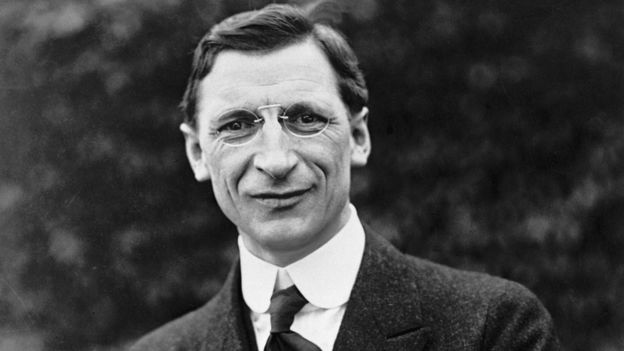PROFESSOR EAMONN de Valera Jr, the son of former President Eamon de Valera, frequently facilitated the illegal adoption of babies long after the 1952 Adoption Act, outlawing the practice, came into force, according to a new RTÉ Investigates documentary.
As a practicing gynaecologist, Prof de Valera Jr was in a position of trust, yet evidence suggests that he abused this power by forging documents to contrive four illegal adoptions during the 1950s and 60s.
While Prof de Valera Jr’s involvement in illegal adoptions has been known about for some time, new evidence unearthed by RTÉ Investigates shows the extent to which some of the country's most powerful individuals acted in flagrant violation of the law.
Wednesday night’s programme revealed that for a period spanning several decades, the top consultant gynaecologist at the National Maternity Hospital on Dublin's Holles Street arranged for the children of unmarried mothers to be secretly adopted by couples, typically those who were unable to conceive children themselves.
RTÉ’s six month-long investigation of the practice uncovered one case where Prof de Valera Jr organised five illicit adoptions by the one family over the course of five-and-a-half years.
Appearing on the documentary, Brenda Lynch, 62, was one of those children. For over six decades, Ms Lynch believed she was the biological daughter of a middle-class couple from north Dublin.
She only discovered in January 2020 that, in a process facilitated by Prof De Valera Jr, she had been illegally adopted and that her birth records had been changed to cover up the facts of her birth.
 Eamon de Valera
Eamon de ValeraContrary to what she has believed for her entire life, Ms Lynch was actually born in St Brendan's in Percy Place, a private Dublin nursing home. Once born, she was taken away from her birth mother and handed over to her adoptive mother, who had feigned pregnancy in the build-up to the handover.
Despite the 1952 Adoption Act, which afforded biological mothers a number of rights relating to their children, no record of Ms Lynch's adoption has been found, nor has documentary evidence of her birth mother’s consent.
She was given over her adoptive parents as a newborn baby. Like many others, the circumstances of her birth were illegally misregistered on her birth certificate to show that she was natural child of her adoptive parents.
"I have nothing. I don’t even know when I was born," Ms Lynch told RTÉ Investigates.
In another instance, documents showed that Prof de Valera Jr arranged antenatal appointments for a woman who was not actually pregnant – to support the façade that her illegally adopted baby was in fact her biological child.
Years later, Prof De Valera Jr wrote a letter concerning the placement of another baby in the late 1960s in which he said: "given his illegitimate background we felt it best the child was placed with a good family."
Though Prof de Valera Jr was the son of one of Ireland's most notable statesmen, he was just one of several powerful individuals involved in facilitating illegal adoptions.
For decades, thousands of other Irish babies born to unmarried women were illegally adopted.
Many of their birth certificates had been falsified to suggest that their adoptive parents were their biological parents.
As a result of the scandal, which was ongoing for decades, many people have been denied knowledge of their true identities.
Misregistering a child’s biological mother has been a criminal offence in Ireland since 1880.
 Eamon de Valera, centre, with several of his advisors in Dublin on January 30, 1922
Eamon de Valera, centre, with several of his advisors in Dublin on January 30, 1922But with little legal oversight, the practice was effectively allowed to continue unchallenged until the passing of the 1952 Adoption Act, which introduced stricter requirements around the informed consent of the mother in adoption cases.
The new statute enshrined a mother’s right to change her mind at any point before her baby turned six months old.
The act also stipulated that adoptions could only take place via registered adoption societies.
Those found to be violating the new laws were "guilty of an offence" and could face imprisonment or a fine.
Evidence suggests that it had little practical effect on Ireland’s adoption system.
As was customary at the time, the then-government even sought Archbishop of Dublin, John Charles McQuaid’s approval for the bill before it was enacted.

